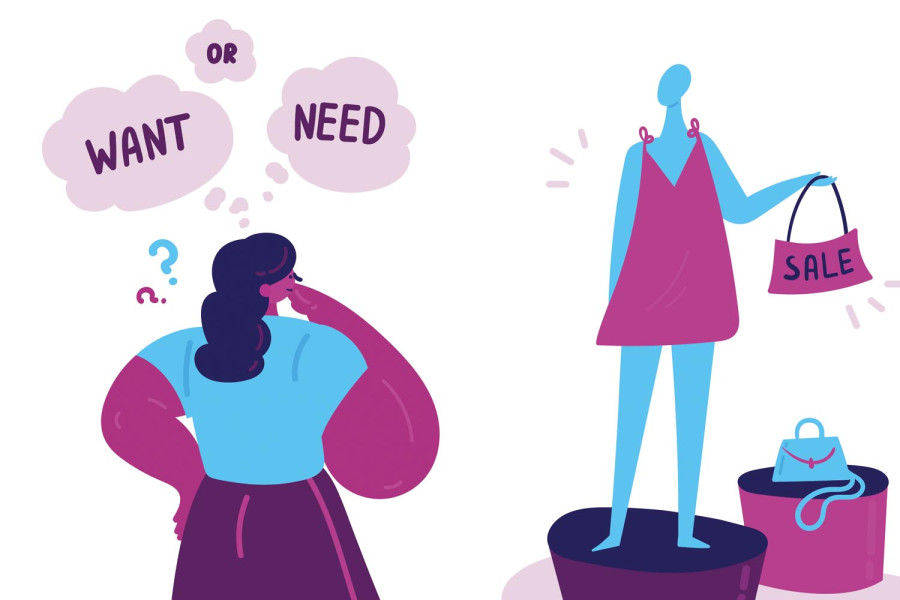Culture & Lifestyle
The paradox of pleasure
How the culture of instant gratification is making us unhappy.
Dipesh Tandukar
A few days back, I wanted to buy a new pair of shoes and bought them without difficulty. Right after that, I went to grab lunch with my friends when one of them commented, "That was fast. In the past, I remember us having to wait several months just to buy a new t-shirt and don't get me started on how much we had to request for some cash from our parents." Hearing this was quite interesting to me. On one hand, I really appreciate the efficiency and ease of buying these things whenever I desired, be it through online platforms or going somewhere physically, but on the other hand, it made me think. Did I appreciate this immediate and quick bombardment of gratification and pleasure? And, the more I researched this, the more evidence came forward that instant pleasure or fulfilment may not be a good thing for us.
Think about the last time when you got something you requested. Think back to when you wanted something and got it without much difficulty. You prolly won't have to think much. It may be the last time you ate something you craved. Or treated yourself to something nice. Or logged into that social media account you deactivated. Or the time you watched that movie or series for the whole day. It seems harmless enough. After all, it's a small thing. How big of a harm can it cause you? But these small things are the ones that indicate how much control we have over ourselves.
In a way, our deeply rooted need for instant gratification isn't entirely our fault. The way companies make social media, games, and shopping so addicting is partly to blame. If it is so easy to satisfy our needs and wants immediately, then, of course, we would opt for it. After all, we are driven by our need for convenience, and this need for comfort is something that has pushed us towards greater innovation. That is the reality, but when we consider how the need and desire for convenience has caused us to become comparatively lazier, unmotivated, stressed and riddled with mental health issues, it makes me think, is the desire for convenience worth all the trouble we may suffer down the line? In the end, we are the ones who are being deeply impacted by it. We are the ones who have to bear the consequences of the decisions we make.
What we are experiencing at those moments is a Paradox of Pleasure.
We, as humans, tend to seek convenience and happiness, and as a result, we always try to create a pleasant environment for ourselves. We have become accustomed to getting what we want when we want it, and that is the problem.
Instant gratification creates a false sense of pleasure. When we get what we want quickly, we experience a temporary rush of dopamine. However, this feeling doesn't last, as we quickly become accustomed to it. But. that rush of dopamine is what we keep chasing. And no amount of material goods can fulfil it.
Eventually, we become unable to delay the need for gratification. This is what we are beginning to see in our daily lives more and more often. We can become frustrated and anxious when we have to wait for something. It is very evident in the way we become very irritated when the internet lags even for a while or when there is load shedding.
The effects of instant gratification are especially more rampant in the younger generation. We often see that they are more prone to anger, self-doubt, and stress as they lack the ability to be patient and wait. This can also be true for those who lack self-control as they become more addicted to the things that give them immediate pleasure.
The problem with seeking immediate pleasure is that it creates a never-ending cycle of desire. The more our needs are fulfilled immediately, the more we tend to become unappreciative of what we possess. We keep chasing for more while our desires never truly end. And, eventually, we may even start to feel like we're not good enough or that we're not living up to our expectations. This can lead to a vicious cycle of negative self-talk and low self-esteem.
This is the reality we are facing in the world. Seeking instant gratification is something that has been ingrained in us, and it is difficult to avoid. But when it comes down to the wire, we have to ask ourselves, is this really making me happy, or is it something that is keeping me distracted from reality?
Ask yourself this, is this momentary happiness really worth it? Is it really making you happy? If your answer is no. It may be time for a change.




 8.55°C Kathmandu
8.55°C Kathmandu















